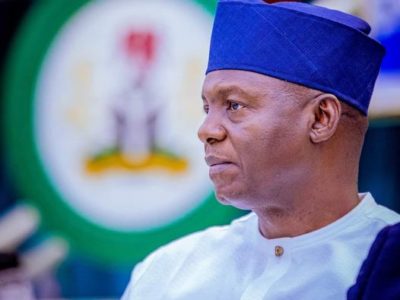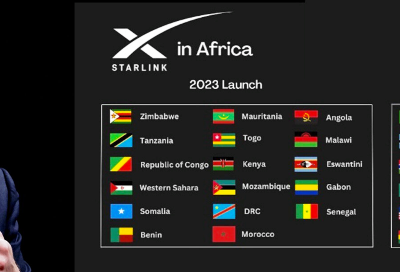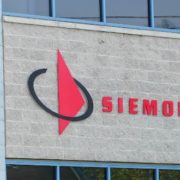Matters eRising with Olusegun Oruame
At the heart of the Nigerian government’s Renewed Hope Agenda is a strong belief that the Nigerian Communications Satellite (NIGCOMSAT) is essential for achieving digital transformation and economic diversification. This vision aims to address unemployment, enhance connectivity, boost consumer spending, and attract investment. Leading this ambitious project is Mrs. Jane Egerton-Idehen, the CEO of NIGCOMSAT, who faces the daunting task of restructuring the organisation to compete with leading global satellite communication players like Elon Musk’s Starlink.
RELATED: NIGCOMSAT: What’s the plan and can Jane Egerton-Idehen deliver?
Egerton-Idehen, an experienced electronics engineer, brings a wealth of expertise from managing enterprise assets in the private sector. Her mission is to transform NIGCOMSAT into a more innovative and competitive entity. However, this is no small feat. The organisation has long been plagued by inefficiencies and now faces fierce competition in the dynamic satellite industry that is perpetually in transition.
Govt business can be profitable and sustainable
Egerton-Idehen’s strategy aligns with the government’s broader goals. During the 20th Herbert Macaulay Memorial Lecture at the University of Nigeria Nsukka, she emphasized the importance of ICT in driving economic growth and diversification. She believes that by addressing challenges and leveraging opportunities, Nigeria can use digital transformation to achieve economic diversification, job creation, and shared prosperity.
As one expert in Lagos puts it, she needs to crack the nut that has made NIGCOMSAT a white elephant and demonstratively prove that any government business can become profitable and sustainable in a way that makes the Renewed Hope Agenda for digital transformation and economic diversification not mere political statement.
“Our economy remained heavily reliant on a single sector for over five decades….There are many ways we can frame our road to diversification and non-dependence in the oil sector. With our experience with ICT, we can safely assume we could reform, and impact various sectors driving economic growth through digital transformation,” she told her audience in Enugu in her presentation with the theme: “Harnessing Practical Engineering Solutions for Sustainable Economic Development.”
The Rage of LEOs
However, NIGCOMSAT’s past mismanagement and the presence of formidable competitors like Starlink present significant obstacles. Starlink’s rapid market expansion, offering high-speed, low-latency internet at competitive prices, poses a direct challenge to NIGCOMSAT. With a growing customer base in Nigeria and across Africa, Starlink’s presence underscores the urgent need for NIGCOMSAT to reassess its market strategy.
The competitive landscape is shifting towards Low Earth Orbit (LEO) satellites, which offer advantages such as faster speeds and greater resiliency against weather disruptions compared to traditional Geostationary Earth Orbit (GEO) satellites. Starlink’s extensive LEO network, comprising thousands of satellites, highlights the scale of competition NIGCOMSAT faces.
“Starlink has launched 1,740 satellites to date. Their second generation of satellites is expected to have more than 30,000 satellites in the overall constellation. Iridium NEXT houses 66 satellites in its constellation, an astonishing 22-times more than Inmarsat’s GEO constellation.”
As one report noted, “Starlink offers ku band high-speed, low-latency internet at competitive prices, which poses a challenge to established players such as NIGCOMSAT, Avanti, Yahsat, and Eutelsat.”
In Nigeria and elsewhere on the continent, Starlink is currently doing a promo that pegged entry cost at less than N450, 000 (about US$420). The attraction is speed and reliability for prospective subscribers.
Speedtest Intelligence found that Starlink’s average download speeds for satellite internet in Nigeria (61.75 Mbps) and the Philippines (110.78 Mbps) were faster than all fixed broadband companies combined. It is an irresistible deal.
Not surprisingly, the result has been outstanding for Elon Musk. SpaceX’s Starlink business is on track to hit $6.6 billion in revenue and post its first free cash flow positive year in 2024, Quilty Space estimates in a new report on the impact of the satellite constellation. SpaceX’s Starlink has changed the game and satellite companies like NIGCOMSAT must rework their market engagement.
Navigating the skies as a new NIGCOMSAT
To navigate these challenges, NIGCOMSAT under Egerton-Idehen’s leadership must adopt innovative strategies. This includes embracing flexible pricing, subscription-based services, and tailored solutions to meet diverse customer needs. Historically reliant on government funding, NIGCOMSAT must now focus on cost optimisation, efficient operations, and reducing overheads to offer competitive pricing.
Diversification is also crucial. The mantra of diversification must play out within NIGCOMSAT just as is the case with Nigeria itself. NIGCOMSAT must expand beyond traditional satellite communications to include value-added services like data analytics, cybersecurity, and digital solutions. Developing local expertise through training programs can reduce reliance on foreign talent, further strengthening the organisation. Right now, does NIGCOMSAT have capacity building programme that could match those of its competitors? Isn’t time it properly looked at developing local expertise?
Strategic partnerships could also play a vital role. Collaborating with LEO operators like Starlink or Eutelsat OneWeb can create complementary services, enhancing NIGCOMSAT’s capabilities. Additionally, engaging with government ministries, departments and agencies (MDAs) and regulatory bodies to advocate for policies supporting the growth of government-owned satellite companies like NIGCOMSAT while also ensuring a level playing field in the face of private sector competition is essential.
Years back NIGCOMSAT launched a rudimentary eVoters Registration device and claimed its research efforts could improve Nigeria’s voting system. That initiative never flew. But it could now provide a template for NIGCOMSAT to also invest in research and development (R&D) to help the company stay ahead of technological trends and capitalize on emerging opportunities.
Government is broke and has no money to finance the launch of new satellites. Given these government’s financial constraints, positioning NIGCOMSAT to build market confidence could attract public-private partnerships, enabling private sector investment in satellite-based projects. These collaborations would share risks and expertise, fostering innovation and growth. While this vision may seem distant, it remains a worthwhile goal.
Regardless, Egerton-Idehen must adopt new strategies to help NIGCOMSAT overcome the challenges posed by LEO operators and policy uncertainties. Successfully navigating these obstacles is crucial for Nigeria to achieve sustained growth and establish NIGCOMSAT as a leading player in the country’s satellite communications industry.
































